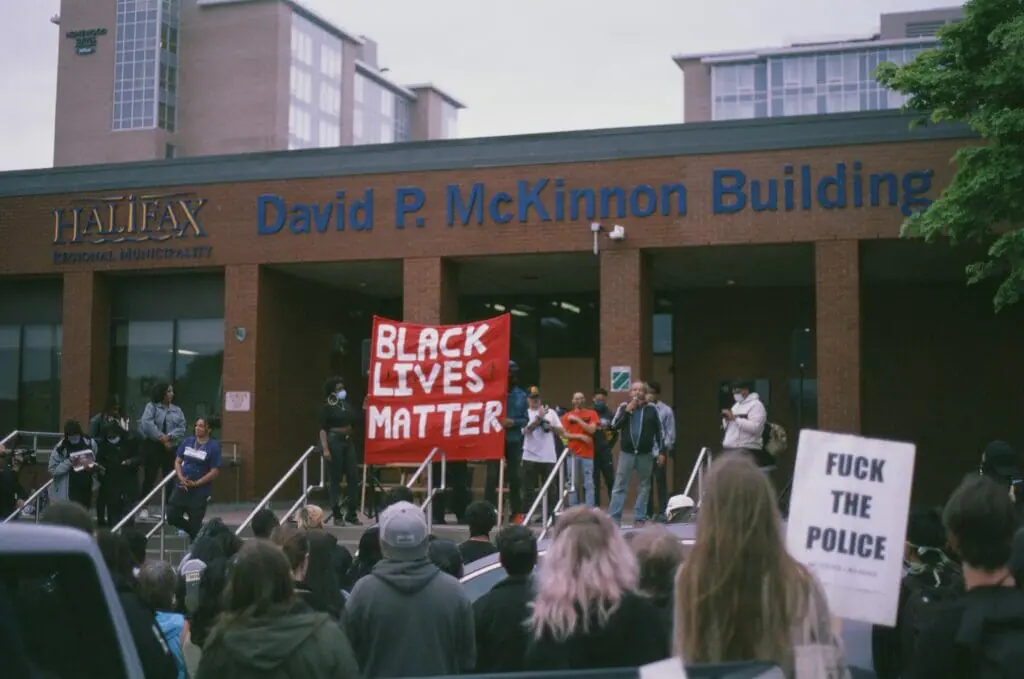
Joining more than 500 post-secondary institutions across the country on Sept. 9 and 10, Dalhousie University professors took part in Scholar Strike Canada. The strike was held to protest anti-Black police violence and support racial justice.
“The Scholar Strike was inspired by similar largescale actions aimed at removing highly visible forms of labour at a critical moment in order to focus public attention on the issues of structural racism in our society, more specifically anti-Black and anti-Indigenous racism in Canada,” said Ajay Parasram, a professor of international development studies at Dal. Having the strike take place early in the school year was important because it allowed those involved in the strike “to set an unforgettable agenda for the academic year,” said Parasram.
As part of the strike, many professors cancelled their classes. While one class can seem insignificant, “cancelling a class is never [done] lightly. In this case, if a professor cancelled a class, that would be a form of education: the Scholar Strike is about raising awareness and encouraging action, and cancelling a class raises awareness and hopefully encourages the students in that class to educate themselves about the issue and take action,” said Shannon Brownlee, a professor of film and media studies at Dal.
Some professors like Parasram also adjusted their syllabi “to reflect the spirit of the strike throughout the year,” Parasram said.
The trouble with cancelling classes
While some instructors cancelled all their classes for Sept. 9 and 10, other professors didn’t feel they could.
“I am precariously employed so I didn’t cancel classes. I continued to work and just did extra work,” said El Jones, a journalism professor at the University of King’s College and activist, who was recently chosen by the Halifax Board of Police Commissioners to write a proposal outlining how to defund the police.
Jones said not being able to cancel classes was likely a position shared by many Black women in academia. Jones isn’t on a permanent contract in Nova Scotia. She said there are many Black and Indigenous researchers, academics and instructors who are often undervalued in the academic world and aren’t being credentialed. Their “labour is so often exploited and not rewarded and recognized,” she said.
Campus calls for Dal to do better
At Dal, students had the chance to take part in the strike in different ways.This included signing the Scholar Strike Canada statement of support, attending the in-person “Be Heard: Black and Indigenous Voices” event or joining a virtual teach-in for Black lives.
The Be Heard: Black and Indigenous Voices event took place in the Studley Quad. It was an open mic event to elevate the voices of Black, Indigenous and other racialized persons through speech and performance. The event was also live-streamed.
Jones spoke at the event and said she’s been asking herself how Dal as an institution met this moment.
“The university completely failed to meet every other moment,” Jones said. “[They] claim dominion over all knowledge and expertise. [They] are the ones that credential you,” but they still can’t “keep up with major intellectual developments in the world,” Jones said.
Where should Dal administration go from here? To start, as “listed on the Scholar Strike website, recruiting Black and Indigenous students, staff and faculty, and supporting them properly once recruited, and ensuring that education is affordable and accessible,” are a few steps Brownlee noted.

According to Parasram, Dal should “invest and reallocate where necessary, the financial resources necessary to make structural changes to how our university operates.”
This could take many forms, Parasram said, such as “cluster-hiring career-stream professors and administrators, properly valuing the under-recognized work that racialized professors do by giving [them] more time and support, supports to do that work through hiring more diverse faculty and offering course releases to overworked existing faculty.”
However, Jones says diversity hiring at Dal can have issues.
“The university will hire Black people. But the question of diversity isn’t just a question of diversity of race. It’s also diversity of views,” said Jones. She continued to say Dal “is happy to hire people that the university perceives as not rocking the boat. They’re happy to have Black heads of senates and Black members of the board of the governors and Black vice-presidents, as long as [they] don’t challenge the institution.”


Recent Comments